Related Research Articles

A Century of Progress International Exposition, also known as the Chicago World's Fair, was a World's Fair held in the city of Chicago, Illinois, United States, from 1933 to 1934. The fair, registered under the Bureau International des Expositions (BIE), celebrated the city's centennial. The theme of the fair was technological innovation, and its motto was "Science Finds, Industry Applies, Man Adapts", giving out a message that science and American life were wedded. Its architectural symbol was the Sky Ride, a transporter bridge perpendicular to the shore on which one could ride from one side of the fair to the other.
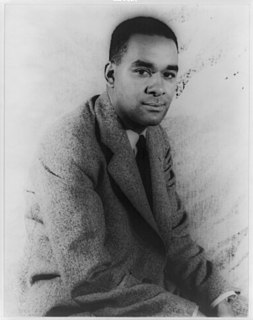
Richard Nathaniel Wright was an American author of novels, short stories, poems, and non-fiction. Much of his literature concerns racial themes, especially related to the plight of African Americans during the late 19th to mid-20th centuries suffering discrimination and violence. Literary critics believe his work helped change race relations in the United States in the mid-20th century.

Gwendolyn Elizabeth Brooks was an American poet, author, and teacher. Her work often dealt with the personal celebrations and struggles of ordinary people in her community. She won the Pulitzer Prize for Poetry on May 1, 1950, for Annie Allen, making her the first African American to receive a Pulitzer Prize.
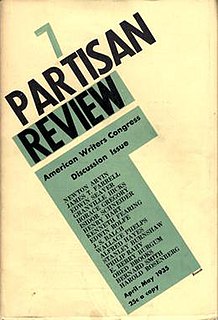
Partisan Review (PR) was a small circulation quarterly "little magazine" dealing with literature, politics, and cultural commentary published in New York City. The magazine was launched in 1934 by the Communist Party, USA–affiliated John Reed Club of New York and was initially part of the Communist political orbit. Growing disaffection on the part of PR's primary editors began to make itself felt, however, and the magazine abruptly suspended publication in the fall of 1936. When the magazine reemerged late in 1937, it came with additional editors and new writers who advanced a political line deeply critical of Stalin's USSR.

Margaret Walker was an American poet and writer. She was part of the African-American literary movement in Chicago, known as the Chicago Black Renaissance. Her notable works include For My People (1942) which won the Yale Series of Younger Poets Competition, and the novel Jubilee (1966), set in the South during the American Civil War.

Kenneth Flexner Fearing was an American poet and novelist. A major poet of the Depression era, he addressed the shallowness and consumerism of American society as he saw it, often by ironically adapting the language of commerce and media. Critics have associated him with the American Left to varying degrees; his poetry belongs to the American proletarian poetry movement, but is rarely overtly political. Fearing published six original collections of poetry between 1929 and 1956. He wrote his best-known poems during the late 1920s and 1930s.
Jessica Nelson North was an American author, poet and editor.
John Jacob Abt was an American lawyer and politician, who spent most of his career as chief counsel to the Communist Party USA (CPUSA) and was accused of membership in the Communist Party and the "Ware Group" alleged by Whittaker Chambers to be a Soviet spy network. Abt denied that the group was a spy ring, noting that the security classification system did not yet exist, and none of the documents he had access to involved national security.
The New American Movement (NAM) was an American New Left multi-tendency socialist and feminist political organization established in 1971.
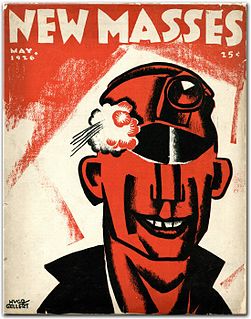
New Masses (1926–1948) was an American Marxist magazine closely associated with the Communist Party USA. It succeeded both The Masses (1912–1917) and The Liberator. New Masses was later merged into Masses & Mainstream (1948–1963). With the coming of the Great Depression in 1929 America became more receptive to ideas from the political Left and New Masses became highly influential in intellectual circles. The magazine has been called “the principal organ of the American cultural left from 1926 onwards."
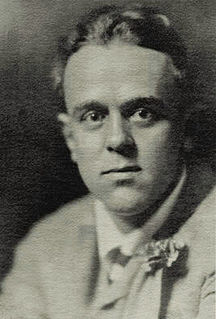
The John Reed Clubs (1929-1935), often referred to as John Reed Club or JRC, were an American federation of local organizations targeted towards Marxist writers, artists, and intellectuals, named after the American journalist and activist John Reed. Established in the fall of 1929, the John Reed Clubs were a mass organization of the Communist Party USA which sought to expand its influence among radical and liberal intellectuals. The organization was terminated in 1935.
Nationality words link to articles with information on the nation's poetry or literature.
Charles Vincent Emerson Starrett, known as Vincent Starrett, was a Canadian-born American writer, newspaperman, and bibliophile.

The League of American Writers was an association of American novelists, playwrights, poets, journalists, and literary critics launched by the Communist Party USA (CPUSA) in 1935. The group included Communist Party members, and so-called "fellow travelers" who closely followed the Communist Party's political line without being formal party members, as well as individuals sympathetic to specific policies being advocated by the organization.
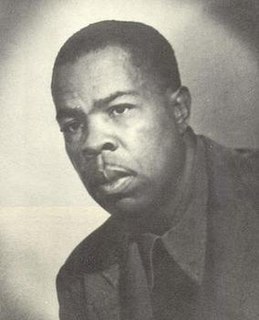
Frank Marshall Davis was an American journalist, poet, political and labor movement activist, and businessman.
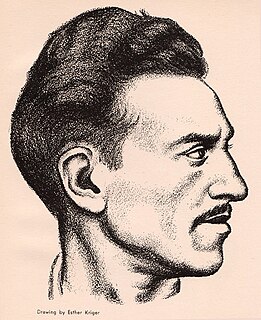
Jacob "Jake" Burck was a Polish-born Jewish-American painter, sculptor, and award-winning editorial cartoonist. Active in the Communist movement from 1926 as a political cartoonist and muralist, Burck quit the Communist Party after a visit to the Soviet Union in 1936, deeply offended by political demands there to manipulate his work.
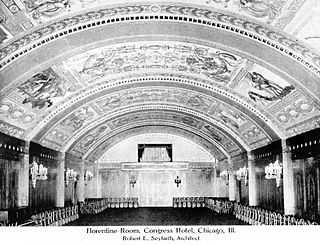
Robert Seyfarth was an American architect based in Chicago, Illinois. He spent the formative years of his professional career working for the noted Prairie School architect George Washington Maher. A member of the influential Chicago Architectural Club, Seyfarth was a product of the Chicago School of Architecture.

Alexander "Alex" Trachtenberg (1884–1966) was an American publisher of radical political books and pamphlets, founder and manager of International Publishers of New York. He was a longtime activist in the Socialist Party of America and later in the Communist Party USA. For more than eight decades, his International Publishers was a part of the publishing arm of the American communist movement. He served as a member of the CPUSA's Central Control Committee. During the period of McCarthyism in America, Trachtenberg was twice subject to prosecution and convicted under the Smith Act; the convictions were overturned, the first by recanting of a government witness and the second by a US Circuit Court of Appeals decision in 1958.

Proletarian poetry is a political poetry movement that developed in the United States during the 1920s and 1930s that expresses the class-conscious perspectives of the working-class. Such poems are either explicitly Marxist or at least socialist, though they are often aesthetically disparate. As a literature that emphasized working-class voices, the poetic form of works range from those emulating African-American slave work songs to modernist poetry. Major poets of the movement include Langston Hughes, Kenneth Fearing, Edwin Rolfe, Horace Gregory, and Mike Gold.
Marguerite Young was an American journalist of the early 20th-century, best known for her Communist Party affiliation, specifically as the Washington bureau chief of the Daily Worker who facilitated the introduction between Soviet spy Hede Massing and American recruit Noel Field. She also knew Alger Hiss. After two years with that newspaper, the CPUSA secretary general and newspaper's editor fired her. During World War II and at least to 1950, she worked for the New York Herald-Tribune.
References
- 1 2 "Richard Wright: John Reed Club". George Washington University. Archived from the original on June 10, 2010. Retrieved May 30, 2010.
- 1 2 Wright, Richard (1940). Native Son. Harper & Brothers. p. 468. ISBN 9780060929800.
- ↑ "Richard Wright: Chronology 1931–1935". George Washington University. Archived from the original on July 1, 2007. Retrieved May 31, 2010.
- ↑ John Logie (2005). "We Write for the Workers: Authorship and Communism in Kenneth Burke and Richard Wright". K. B. Journal. 1 (2).
- ↑ "Richard Wright". University of North Carolina: All American encyclopedia. Archived from the original on June 13, 2010. Retrieved May 30, 2010.
- ↑ "Richard Wright: Chronology". University of Illinois at Champlain: Modern American Poetry. Retrieved May 30, 2010.
- ↑ "On Richard Wright's Poetry". University of Illinois at Champlain: Modern American Poetry. Retrieved May 31, 2010.
- ↑ "Richard Wright: Life". University of Illinois at Champlain: Modern American Poetry. Retrieved May 30, 2010.
- ↑ "Richard Wright: Chronology". Independent Television Service (ITVS). Retrieved May 31, 2010.
{{cite web}}: External link in|publisher= - ↑ "Richard Wright: Primary (Poetry and Secondary Source Bibliographies". University of Illinois at Champlain: Modern American Poetry. Retrieved May 31, 2010.
- ↑ "Richard N. Wright". Visit Natchez. Retrieved May 31, 2010.
- ↑ Ward, Jerry Washington (2008). The Richard Wright Encyclopedia. [Greenwood Press]. p. 137. ISBN 978-0-313-31239-7 . Retrieved May 31, 2010.